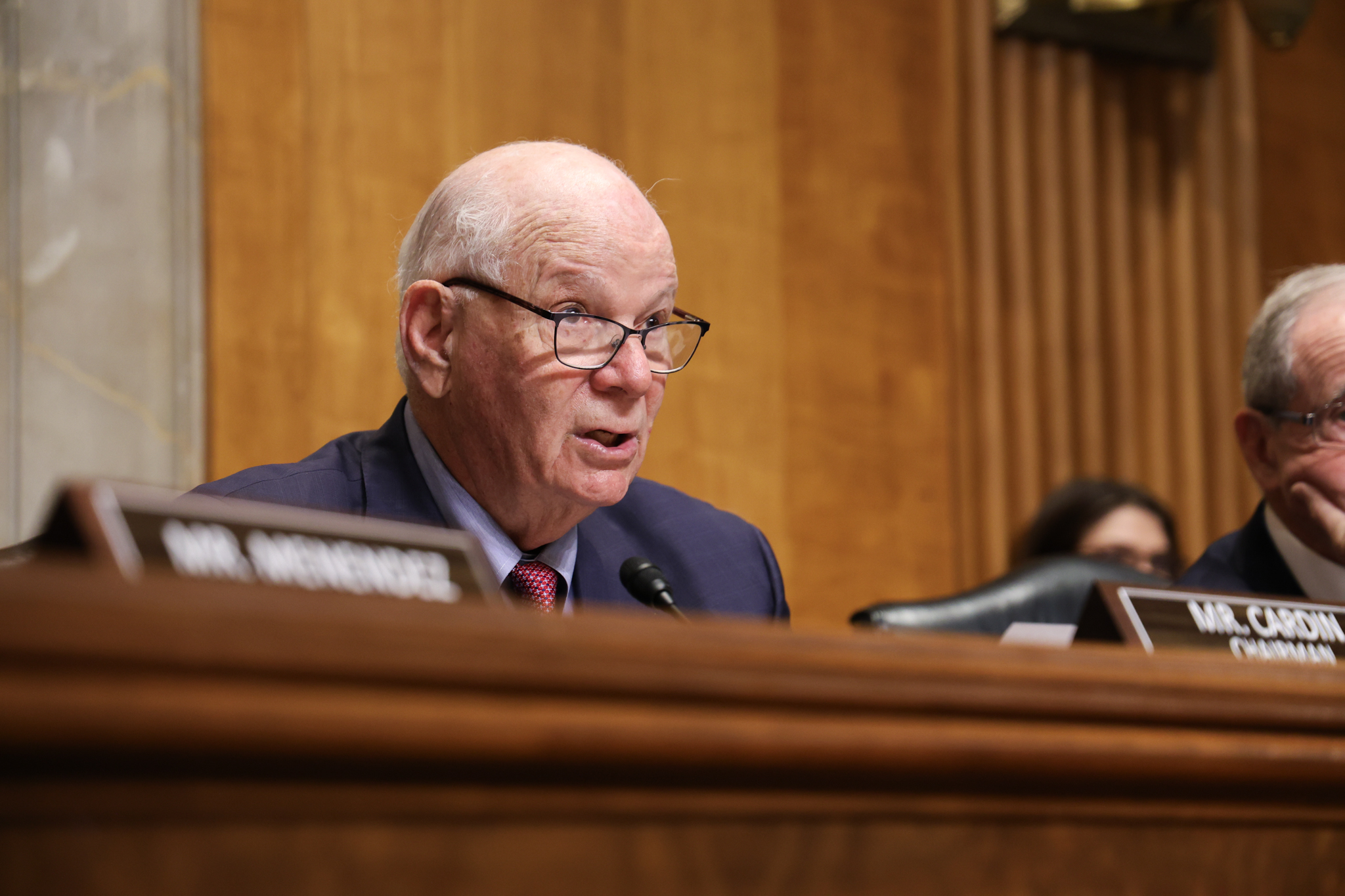Chair Cardin Opening Remarks at FY2025 USAID Budget Hearing
WASHINGTON – Today, U.S. Senator Ben Cardin (D-Md.), Chair of the Senate Foreign Relations Committee, delivered opening remarks at the full Committee hearing on the United States Agency for International Development (USAID) FY2025 budget request.
WATCH THE CHAIR’S OPENING REMARKS HERE.
More information about the hearing is available here.
A copy of the Chair’s remarks, as delivered, have been provided below.
The hearing of the Senate Foreign Relations Committee will come to order. Our hearing today is for the United States Agency for International Development budget request for FY25. We welcome the honorable Samantha Power, with us today. The Admisnitrator is doing an incredible job with all the challenges we have around the world. So we thank you for your public service. From the civil war in Sudan, to terror attacks and coups in West Africa in the Sahel region, to the famine in Gaza, to the humanitarian crisis in Haiti – there are more and more challenges in the world today.
And yet, despite the best efforts of our colleagues on the Appropriations Committee – I know that we have Senator Shaheen here, and Senator Coons who chairs the subcommittee – the foreign assistance budget for this year enacted six months into the year declined by 5% in some parts of the USAID budget and some by as much as 10%. The result is that when we try to address one crisis, we often have to use money from somewhere else. We shouldn't have to choose between addressing the climate crisis or helping vulnerable communities adapt to our rapidly changing world; or housing refugees fleeing violence; or funding anticorruption programs; or strengthening our global health initiatives. We need to expand the pie.
Administrator Power, I know that you deal with these daunting challenges every day at USAID. I appreciate your leadership and thank you for appearing before us today. I recognize that you and your team work in some of the toughest and most dangerous places in the world. By supporting economic development in the Pacific Island nations to Latin America, USAID is pushing back against China's growing influence. By helping Ukraine with direct budget support, you are keeping the government open while it fights back against Putin's brutal attacks. Our nation's generosity is a stark contrast to programs like China's Belt and Road Initiative. United States’ international development strategy is about supporting the aspirations of millions of average citizens around the world. It’s about promoting prosperity, independence, and peace. As opposed to the debt-trapped diplomacy Beijing uses to exert tremendous influence to weaken democracy, cement corruption, and assert control over decision-making in sovereign nations. This is why the success of USAID is so central to the United States’ national security interests. Because the more free and thriving democratic nations that exist in the world, the safer and more prosperous we will be at home. I think good governance and anticorruption efforts must be at the heart of USAID's mission on the ground, and I hope you'll give us an update in this regard.
I also look forward to hearing about the progress USAID is making in putting local communities in the lead of delivering programs, as you pledged to do two years ago. We had a pretty healthy discussion about that during your testimony at that time. Localizing our assistance is critical to building sufficiency and getting the most bang for our buck. I also want your assessment of USAID’s humanitarian relief around the world. Sudan faces a famine. I know Senator Booker was recently in Sudan and reported to some of us the circumstances he saw, which are extremely dire. Haiti is a challenging environment, although the World Food Program supported by Food for Peace has an enormous warehouse in Port-au-Prince with grain stacked to the ceiling, and yet we have a crisis in Haiti. We need to get to the people before they go hungry. Even as we respond to world crises and natural disasters, you also need to plan for the long-term. Energy security, infrastructure, water and sanitation, equal opportunity for women and girls, democracy and good governance assistance – many of these issues USAID handles will boomerang back to us in the future if we don't make real progress on addressing these challenges today.
Your work is critically important to the United States’ national security interests. So Administrator Power, we have a lot to cover, and I look forward to your testimony. At this I will recognize my distinguished Ranking Member, Senator Risch.
###
